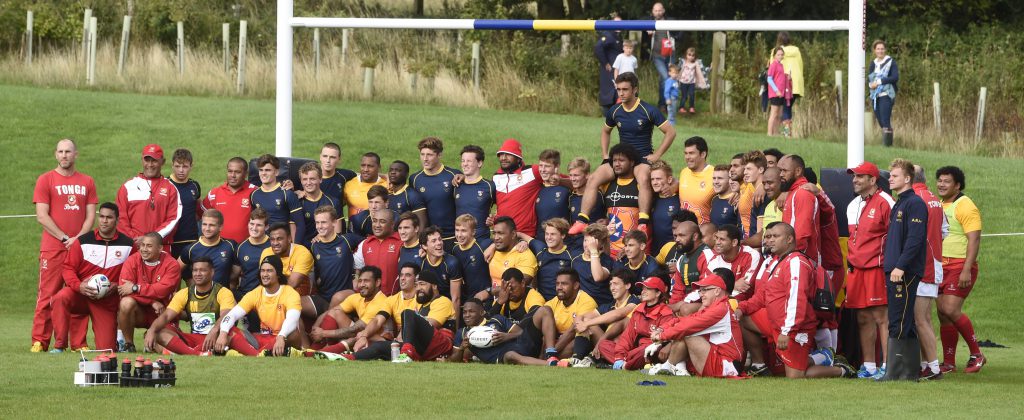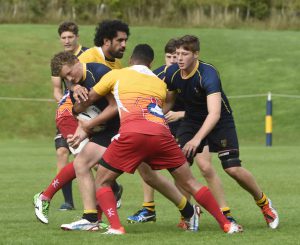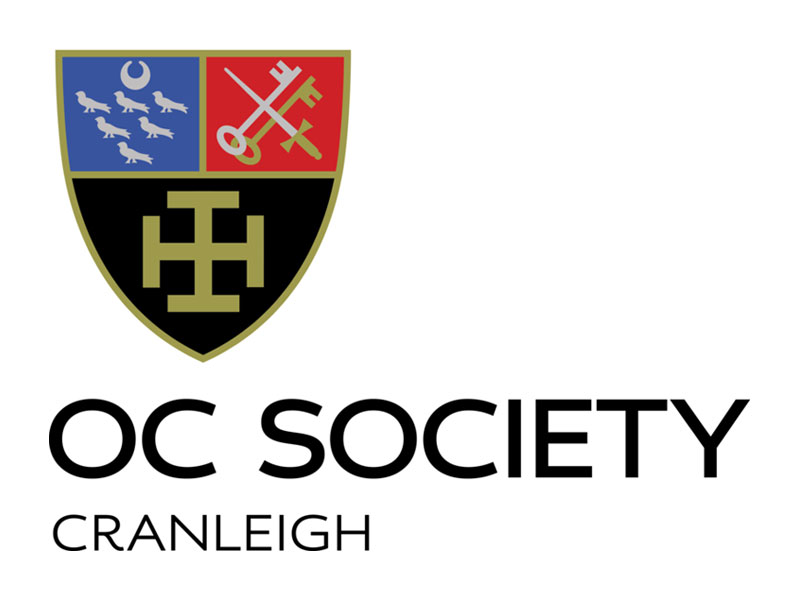
The rugby World Cup is a land of blood, sweat and tiers. Where England have enjoyed a high-altitude training camp in Denver, the Tonga squad have just undergone a frantic dash to Debenhams to buy 48 towels. They are putting together a dream on faith and hand-outs, but they have already conquered one corner of England.
Tonga were one of the first overseas teams to arrive and have been based at Cranleigh School, in Surrey, before their first match against Georgia. It is a collaboration that came about when a school governor invested in a film, Pacific Warriors, recounting the story of Tongan, Samoan and Fijian rugby, complete with Sir Ranulph Fiennes dubbing rugby “a ferocious way of not killing your neighbour”.
Cranleigh agreed to dig deep and put the squad up in a boarding house, while the school chef cut into his holidays to serve up endless chicken. The players have since indulged in a sing-off against a visiting choral society and are regulars at a nearby branch of Costa Coffee.
In the pouring rain, they are running a training session with some of the Cranleigh boys. It is what the World Cup is all about, but the occasion highlights the polarities between the Tier 1 and Tier 2 nations. “It’s not a level playing field,” Sir Clive Woodward says in Adam Perrin’s film. “And it is going the wrong way.”
Perrin is watching the session. “It is incredible what these guys do,” he said. “You could get the whole of the population of Tonga into Twickenham, yet they beat France in 2011. I honestly believe they can win the World Cup.”
That sounds like award-winning optimism, but the Tonga squad is pooled from players based in England, France and Australia, and it would be stronger still but for European clubs’ refusal to release everyone.
Mana Otai, the head coach, says that he is without three men for the World Cup. Under Regulation 9, clubs are supposed to release players for designated international periods, but those from smaller nations are sometimes asked to choose between lucrative club contracts and their country. The feeling among the Pacific Islanders was highlighted when Eliota Fuimaono-Sapolu, once of Samoa, starting talking about “sh***ing on the game”, and said that World Rugby regulations had the value of donkey urine.
Peter Harding, Tonga’s high performance manager who was part of the Australia coaching team at the last World Cup, sympathised, saying: “Players have conflicting problems. They have to make sure they look after their family and future. They have a hard decision to make on whether they protect their contract or come and play for Tonga. It’s not for us to enforce it.”
It is just another obstacle, along with discovering a towel shortage at Cranleigh. Yet problems are dismissed with a smile that is often at odds with elite sport.

Andy Houston, the Cranleigh director of rugby, said: “Everyone talks legacies after Olympics and World Cups, but with high ticket prices and nations keeping players behind doors, it’s an overused word. But these guys have been so humble. On four occasions we’ve had kids from local schools, state and private, coming through the doors, parents and kids who might not have felt welcome before. They have shown you can be professional without having a chip on your shoulder.” The odds, and facts, are weighted against them, with Argentina and New Zealand in their pool. Last year they thought that they had found an advantage via rules stating that players could represent a second country if they had a passport and had not played for their present side for 18 months. George Smith, the Australia flanker, immediately became a target. Then the rules changed again.
Otai said: “They say whoever makes the rules win, but one of the things that drives us is the struggle. There was a loophole that wasn’t recognised before, but we were the ones asking questions because we have been stung by fines in the past. We asked for clarity.
“In general, Tier 2 nations are so far behind professional rugby. We have got to get that mentality to make it sustainable. We can’t keep relying on hand-outs.”
Perrin says that rugby players sending money home is the country’s second biggest source of income after agriculture. It is more than a game. In 2007, Epeli Taione, then a player, now chairman of the Tonga Rugby Union and spouse to a Tongan princess, agreed to change his name to Paddy Power, the Irish bookmaker bankrolling the squad’s bills.
Only the intervention of the IRB prevented the entire team dyeing their hair green for their game with England. Tonga lost 36-20 to England and by just five points to South Africa. World Rugby will invest some of the Rugby World Cup profits into Island rugby, but there are still few green shoots to be seen.
However, this squad is their best prepared. Jake White, South Africa’s World Cup-winning coach, joined the coaching team last year before departing for Montpellier, and they have an even higher authority to call on.
“One look at us and you have to say it can’t be a mere coincidence of evolution or genetics,” Otai said. “It has to be the creation of someone far superior. That’s why we back ourselves. Why can’t we win the World Cup?”
This article appeared in the Sunday Times on Sunday, August 30, 2015

